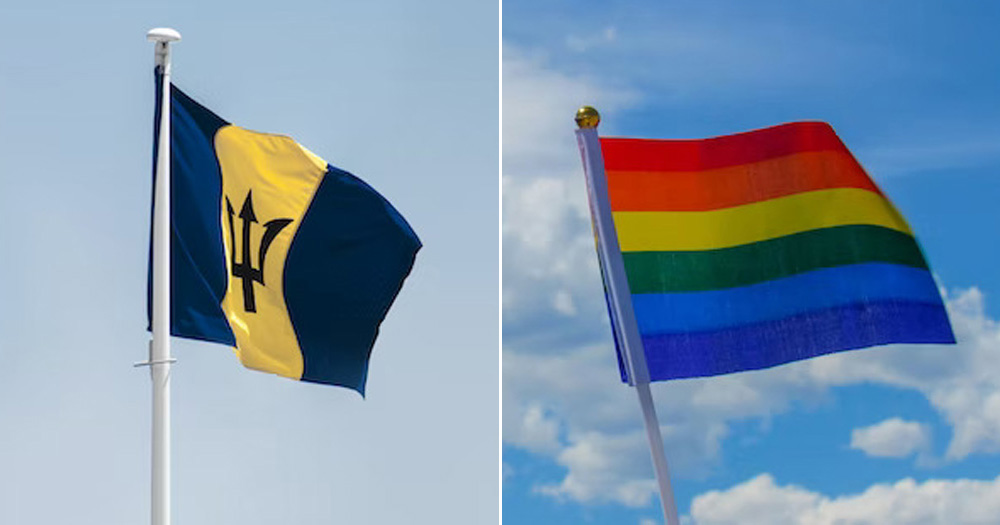Barbados has just become the third Caribbean region this year to strike down laws that criminalise gay sex. The country’s High Court issued an oral ruling on Monday, December 12, to repeal Sections 9 and 12 of the Barbados Sexual Offences Act. Also known as the “buggery” and “indecency laws”, this legislation prohibited consensual same-sex intimacy.
Those convicted of offending Section 9 of the act could be imprisoned for life, while those offending Section 12 could result in 10 years’ incarceration.
On Monday the Barbadian High Court issued the oral ruling finding the legislation to be unconstitutional. A full written ruling expressing the court’s reasoning is expected to be released in late January.
The case was initially filed by two LGBTQ+ activists in the country, supported by local organisation Equals and the Eastern Caribbean Alliance for Diversity and Equality. The decision in Barbados follows similar advances made for LGBTQ+ rights in Antigua and Saint Kitts and Nevis earlier this year.
While the law was rarely invoked, Téa Braun, Chief Executive of the Human Dignity Trust, said it was a reminder to LGBTQ+ people in Barbados that they were regarded as criminal and lesser-grade citizens.
She described the repeal as a “resounding victory,” adding that “The Trust is immensely proud to have provided technical assistance to these cases since 2015, and we heartily congratulate the whole team, especially the local litigants and lawyers who have doggedly pursued justice in the many years leading up to this momentous day.”
She continued, saying: “There are now only six countries in the Americas where laws linger on the books that have been in place since colonial times criminalising LGBTQ+ people. Today’s decision makes clear that the remaining few must now accelerate the repeal or striking down of these stigmatising laws.”
In yet another historic decision that will echo loudly around the remaining criminalising countries in the Caribbean, the High Court of #Barbados yesterday struck down discriminatory criminal laws that targeted #LGBT people. https://t.co/UNY3L6RMMF pic.twitter.com/63fO8UAWh6
— Human Dignity Trust (@HumanDignityT) December 13, 2022
These six remaining regions are Guyana, Grenada, Dominica, St Vincent and the Grenadines and Jamaica. According to The Guardian, a case in St Lucia is pending.
In a statement released by UNAIDS, the organisation celebrated the news, writing “Laws that punish consensual same-sex relations, in addition to contravening the human rights of LGBTQ+ people, act as a barrier to improving health outcomes, including in the HIV response. Such laws sustain stigma and discrimination against LGBTQ+ people and stop them from seeking and receiving healthcare for fear of being punished or detained. Decriminalisation saves and changes lives and builds stronger societies.”
UNAIDS congratulates Barbados on its decision to repeal colonial-era laws that criminalised same sex sexual relations.
“This historic decision is a significant step towards protecting the human rights & dignity of LGBT ppl in Barbados,” says @LuisaCabal_https://t.co/v5gQ0HGF71 pic.twitter.com/3HRaSnwQcf
— UNAIDS (@UNAIDS) December 13, 2022
© 2022 GCN (Gay Community News). All rights reserved.
Support GCN
GCN is a free, vital resource for Ireland’s LGBTQ+ community since 1988.
GCN is a trading name of National LGBT Federation CLG, a registered charity - Charity Number: 20034580.
GCN relies on the generous support of the community and allies to sustain the crucial work that we do. Producing GCN is costly, and, in an industry which has been hugely impacted by rising costs, we need your support to help sustain and grow this vital resource.
Supporting GCN for as little as €1.99 per month will help us continue our work as Ireland’s free, independent LGBTQ+ media.

comments. Please sign in to comment.